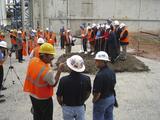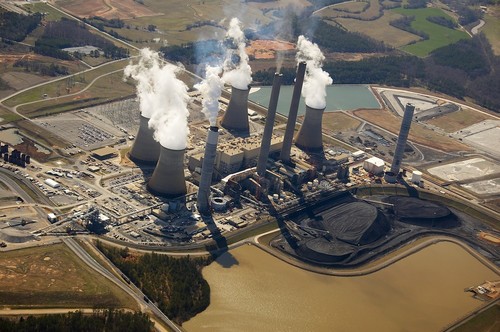Numerous eminent current and former regulators, governors,
and legislators’ best advice for how to keep fracking from
polluting our aquifers and drinking water: “strict regulation”.
As Gandhi reputedly said about western civilization: that would be a good idea.
But in Georgia and many other places, where the regulatory agency
(GA PSC) and the legislature are pretty much captured by the utilities
they pretend to regulate, how will we get that “strict regulation”?
This was at a Politico event, sponsored by American Wind Power,
called Energy & the Presidency.
Join POLITICO for a lunch conversation with energy experts and
policy leaders
 as they discuss current energy legislation, the
energy debates facing the nation, policy options and what’s ahead in
the year to come. Speakers include: ClearView Energy Partners’ Kevin
Book; former Administrator of the EPA and former Director of the
White House Office on Climate Change, Carol Browner; Rep. Ed Markey
(Mass.); former Gov. Bill Richardson (NM) and former Gov. Bill
Ritter (Colo.).
as they discuss current energy legislation, the
energy debates facing the nation, policy options and what’s ahead in
the year to come. Speakers include: ClearView Energy Partners’ Kevin
Book; former Administrator of the EPA and former Director of the
White House Office on Climate Change, Carol Browner; Rep. Ed Markey
(Mass.); former Gov. Bill Richardson (NM) and former Gov. Bill
Ritter (Colo.).
When: Wednesday, September 5, 2012 at 12:00 pm ET
 This event was in North Carolina, where the late John Blackburn, Ph.D.
already reported two years ago that
the whole state could be powered by wind, sun, existing hydro, landfill gas, and less natural gas than is already in use,
why do we need fracking at all?
This event was in North Carolina, where the late John Blackburn, Ph.D.
already reported two years ago that
the whole state could be powered by wind, sun, existing hydro, landfill gas, and less natural gas than is already in use,
why do we need fracking at all?
Georgia has similar real renewable energy potential,
plus studies by
Georgia Tech
and Duke
indicate that Georgia doesn’t need any additional total electric power
anyway, if it gets on with energy efficiency.
Add
solar and
wind instead of natural gas, and we can retire a lot of
coal plants.
With no need for fracking.
I have an idea:
let’s elect Public Service Commissioners and legislators who are not
beholden to the utilities they will regulate!
-jsq
“United States of ALEC,” a report on the most influential corporate-funded political force most of America has never heard of — ALEC, the American Legislative Exchange Council. A national consortium of state politicians and powerful corporations, ALEC presents itself as a “nonpartisan public-private partnership”. But behind that mantra lies a vast network of corporate lobbying and political action aimed to increase corporate profits at public expense without public knowledge.











 for
for 







